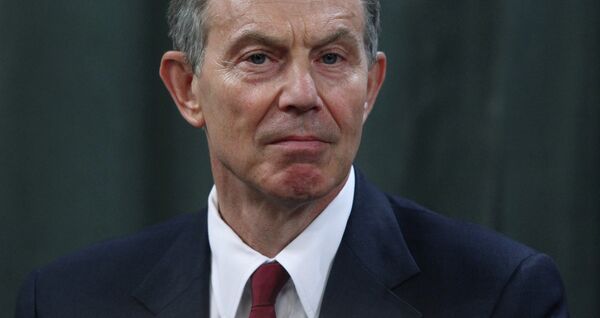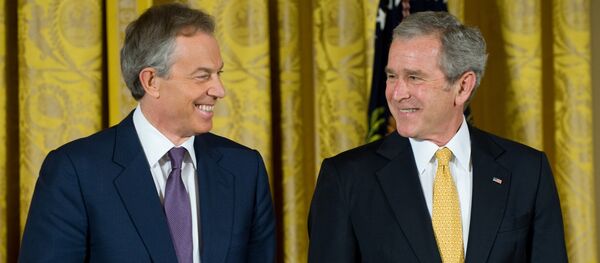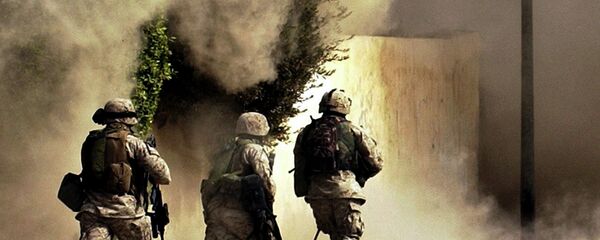Days before the invasion, Lord Goldsmith appeared to mollify his advice, in public, but there have been calls ever since for it to be published. It forms part of the inquiry into the invasion under Sir John Chilcot, who said his report would eventually be published in June or July 2016.
Now it has emerged that when Lord Goldsmith's legal advice was delivered to cabinet ministers, they were told to: "Burn it. Destroy it."
A senior No 10 figure at the time told The Mail on Sunday:
"There was pandemonium. The date when war was expected to start was already in the diary, and here was Goldsmith saying it could be challenged under international law. They said "burn it, destroy it" and got to work on the AG [Attorney General]."
Blair has come under increasing pressure over his decision to join US President George W. Bush in the invasion of Iraq in 2003, which led to the toppling of Saddam Hussein, who had been president since 1979.
Blair was further accused of breaking international law because his invasion of Iraq was illegal and did not have the backing of the United Nations. In 2004, the — then — UN Secretary General Kofi Annan, was asked in an interview if it was true that the invasion was not sanctioned by the UN Security Council or in accordance with the UN's founding charter. He replied: "Yes, if you wish."
He then added:
"I have indicated it [Iraq invasion] was not in conformity with the UN charter. From our point of view and from the charter point of view it was illegal."
The current Labour Party leader Jeremy Corbyn added his own criticism of Blair. "I think it was an illegal war, therefore he [Blair] has to explain that," he told the Newsnight program on TV.
Blair's government, in the run-up to the invasion, faced down one of the biggest popular uprisings Britain had seen against going to war over Saddam Hussein's regime. Blair agreed with the US President, George W. Bush's view that the Iraqi dictator had weapons of mass destruction that could be used against British targets.
Bush and Blair held private talks, the details of which have been kept confidential, but which — many believe — would lay bare the agreement Blair made with Bush to follow the US into a war for regime change in Iraq — this lay Blair open to charges of war crimes.
Chilcot Inquiry Delays
After years of pressure to uncover the deals made between Bush and Blair, the — then — British Prime Minister Gordon Brown caved in to public pressure and called for an inquiry which was launched in July 2009, chaired by Sir John Chilcot. Its terms of reference it was to: "consider the period from the summer of 2001 to the end of July 2009, embracing the run-up to the conflict in Iraq, the military action and its aftermath… the way decisions were made and actions taken, to establish, as accurately as possible, what happened and to identify the lessons that can be learned."
Five years after hearing the last evidence, the Chilcot inquiry — which has cost over US$16 million — will publish its report next summer. Those who are subject to criticism have been allowed time to read parts of the report and respond to them ahead of publication. Blair's office has always denied holding up the process.




